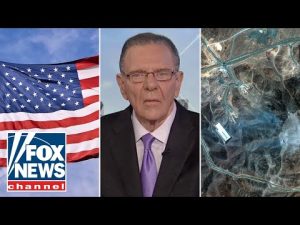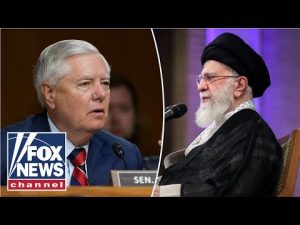In a recent whirlwind of press conferences and media frenzy, the Pentagon found itself center stage as the hub of heated discussions over national defense and the consequences of publicizing sensitive information. The focus was on how leaks and speculative reporting can have far-reaching repercussions, particularly when it comes to military operations aimed at hostile nations like Iran and China. With the stakes raised high, one spokesperson stood firm, addressing the importance of responsible reporting and the critical nature of maintaining the integrity of military intelligence.
The crux of the issue is that when snippets of information get leaked to the media, they can be easily misconstrued, leading to a press cycle that might skew the truth. These leaks often come with agendas, causing panic and confusion instead of clarity. Think of it this way: if a news outlet operates without restraint and throws out half-truths, they are not just misleading the public; they are also giving adversaries a leg up by exposing details about military capabilities and strategies. It’s almost like handing over the playbook to the other team before the big game!
A big talking point emerged around the Battle Damage Assessment (BDA) of military strikes, which is essentially an analysis that measures the effectiveness of a military operation. If this critical information falls into the wrong hands, it could allow countries like Iran to adjust their defenses or build more insidious facilities to counter U.S. military efforts. So, the question arises: how much does the public really need to know? While transparency is essential, there are certain operations where a little mystery might be beneficial not just for the military but for national security too.
Another interesting angle discussed was the attitude of some members of the media and politicians alike, who seemingly thrive on creating a narrative that undermines the success of military operations. Instead of celebrating the achievements of the armed forces, these voices focus on critiquing every action taken, particularly during the Trump administration. This discontent toward military efforts that are designed to keep Americans safe could be viewed as a misplaced priority. Rather than highlighting the hard work of pilots and military personnel who thwart threats, the emphasis often shifts to negative reporting. So much for rallying behind the troops when cynicism seems to reign supreme.
It seems our journalists have become experts at dragging their heels into every misstep while largely disregarding the sacrifices made by those in uniform. Critics argue that instead of questioning the military’s efficacy without evidence, there should be at least acknowledgment of the challenges undertaken by the brave men and women up in the sky flying bombers and executing missions that safeguard American interests. But alas, it appears that naysayers stand firmly rooted in their belief that any act beneath their scrutiny must somehow be flawed.
At the end of the day, one thing is abundantly clear: while the First Amendment protects the right to free speech, it doesn’t absolve the responsibility that comes with such freedom. If the media has the power to inform, then they also bear the weight of ensuring that their information doesn’t unintentionally endanger the very security they claim to champion. Perhaps it’s time for the media to unite in the spirit of America, rather than divide—after all, it’s a team effort when it comes to standing up against foes chanting “Death to America.” So, what can we expect next? Only time will tell if a new narrative emerges—one that champions the bravery of those who protect this great nation rather than tearing them down.







